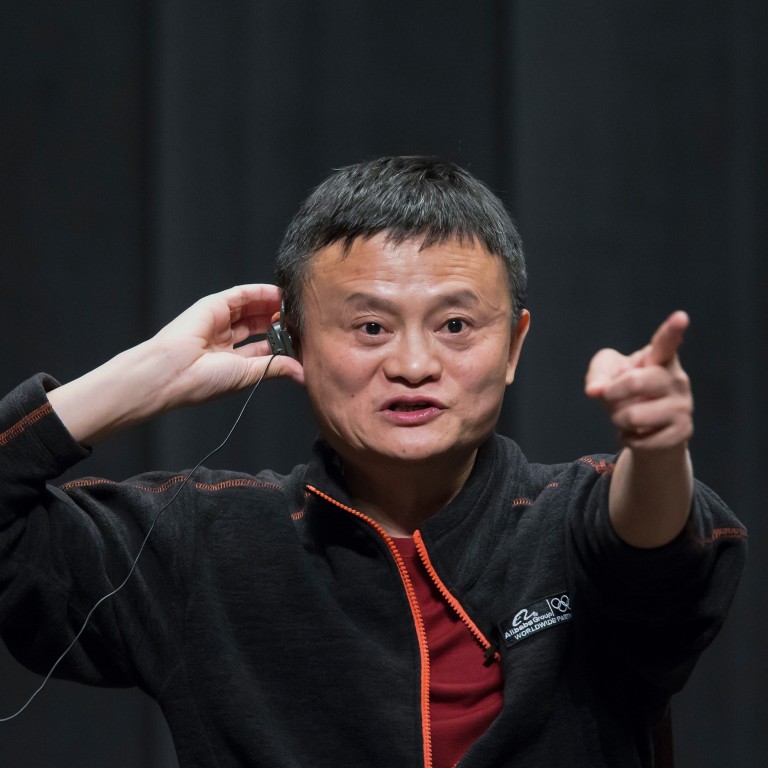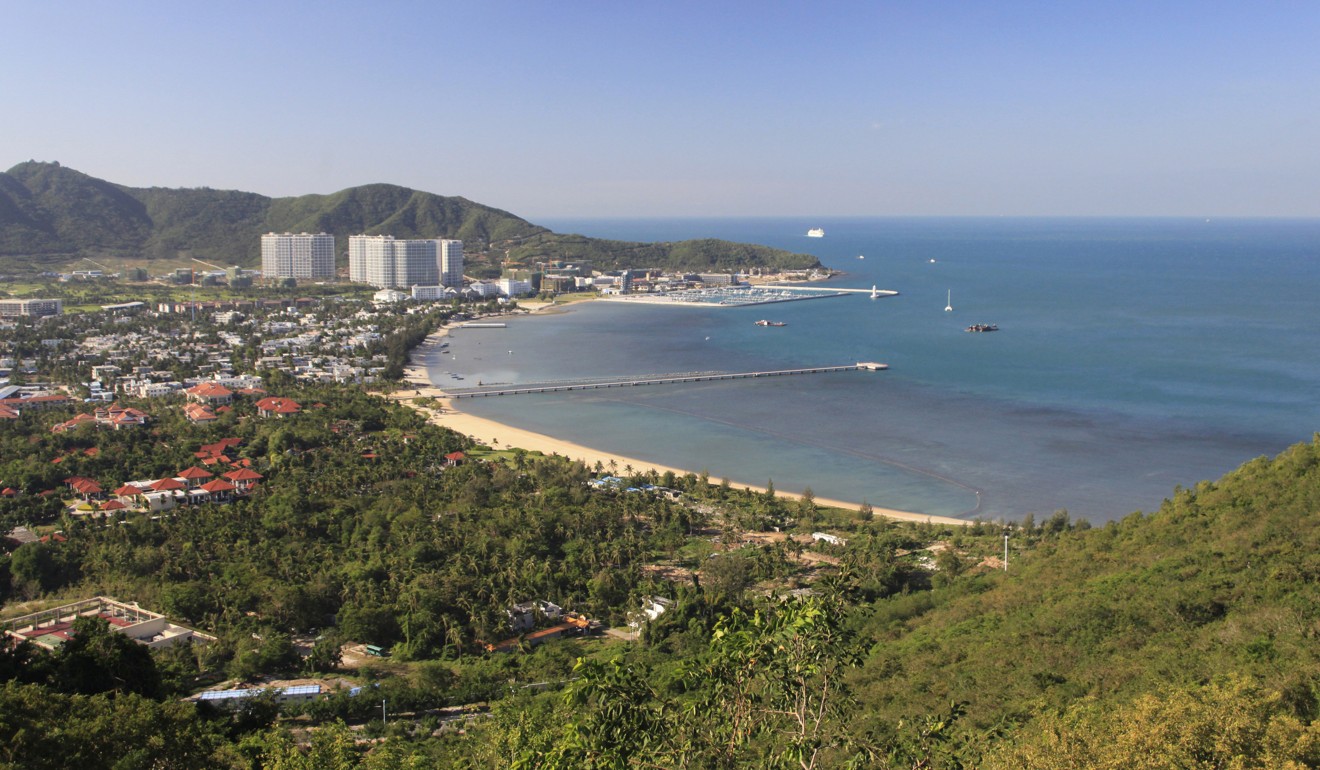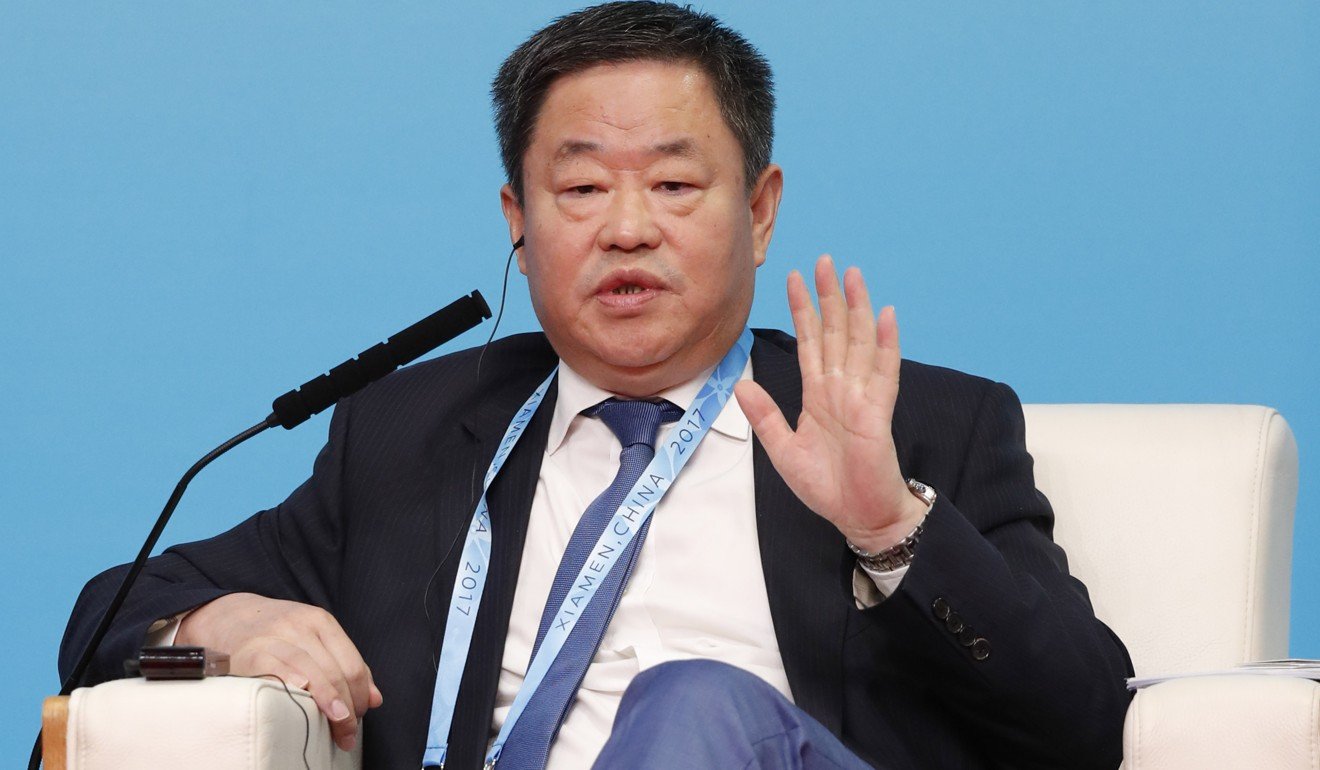
Hainan must overtake Hong Kong on international trade in digital age, Alibaba’s Jack Ma Yun says
- China’s richest man says resort island should aim to become a digital hub
- Hainan should spearhead ‘making the yuan an international currency’ and promoting mobile payments technology
A plan to transform “China’s Hawaii” into a digital economic leader could help set new global trade rules that would be more palatable to countries unhappy with free trade rules “set by the West”, Alibaba Group Holding executive chairman Jack Ma Yun said.
China’s richest man, who has been named a special adviser to the island of Hainan, also said the resort area should aim to become a hub for the digital economy by taking the lead in making the yuan an international currency and promoting mobile payments technology. Alibaba owns the South China Morning Post.
Hainan must aim to “overtake Hong Kong” by becoming a major player in digital age international trade, Ma said, speaking to mark his appointment to the Business Leaders’ Advisory Council. The council was created to advise the government on its plan to accelerate Hainan’s opening up and the development of the China (Hainan) Pilot Free Trade Zone.
“The ongoing Sino-US trade talks are actually about both parties wanting to explore a new set of rules for trade,” Ma said, referring to negotiations aimed at resolving the tariff battle US President Donald Trump launched amid US complaints about America’s trade deficit with China and other trade-related issues.
“I believe that the most important value of the Hainan free trade port lies here; it is not about building a port, but rather it is about how Hainan can actively participate in the formulation and setting of new rules of global trade.”

The “rules of the game on free trade are set by the West”, Ma said. However, “the whole world is not satisfied about how the new rules are being set.
“The US is not happy with the rules of the game as set by the World Trade Organisation, Europe is not happy with it and in fact, neither is China,” he said.
Hainan, an island of roughly 9 million people at the nation’s southernmost point in the South China Sea, earned the nickname of “China’s Hawaii” because of subtropical weather that has made it a popular holiday destination.
Ma suggested that Hainan today stood at about the same crossroads as Shenzhen, a leading southern China technology hub, did decades ago.
“Forty years ago, Shenzhen faced the opportunity of entering the market economy,” Ma said. “Now Hainan is faced with the opportunity of entering the digital age. Hainan’s unique advantage is that it can genuinely become a digital island.
“Thirty or 40 years ago, Pudong [Shanghai’s financial district] was a fishing village. Hong Kong was a fishing village; Shenzhen was a fishing village. None of them could have imagined what they have become today.
“Hainan is also a fishing island, but with a larger area.”
Ma urged Hainan to position itself as a digital-friendly haven for small enterprises, modelling itself after Hangzhou – where Alibaba – a Chinese multinational conglomerate specialising in e-commerce, retail, internet and technology – was founded and is headquartered.
He also said Seattle, the northwestern US city where coffee colossus Starbucks originated, was a good model for Hainan.

Besides Ma, Chinese corporate leaders and scholars who joined the Business Leaders’ Advisory Council include Pony Ma, chairman and CEO of investment holding conglomerate Tencent; Ning Gaoning, chairman of chemicals and fertiliser conglomerate Sinochem; Zhou Qiren, a professor and economist at Peking University’s National School of Development; and Liang Jianzhang, co-founder and chairman of online travel agency Ctrip.
Ma said Hainan should aim high and make its new era about more than the building of infrastructure.
Beijing launched the Hainan free-trade zone to great fanfare last year, hoping the largest of 11 free trade zones in the country could lure investors and businesspeople with the promise of loosened restrictions.
Plans also call for Hainan to have the world’s largest international seaport by 2025 at 34,000 sq km (13,127 square miles), bigger than Hong Kong, Singapore or Dubai.
Vice Commerce Minister Wang Shouwen said in October that the Hainan plan reflected China’s “determination and confidence to further open up to the outside world”.
In the past, the Hainan government tried to boost tourism by legalising betting on horse races and establishing a censorship-free internet zone for foreigners. But the ideas met with stiff opposition and were shelved.

